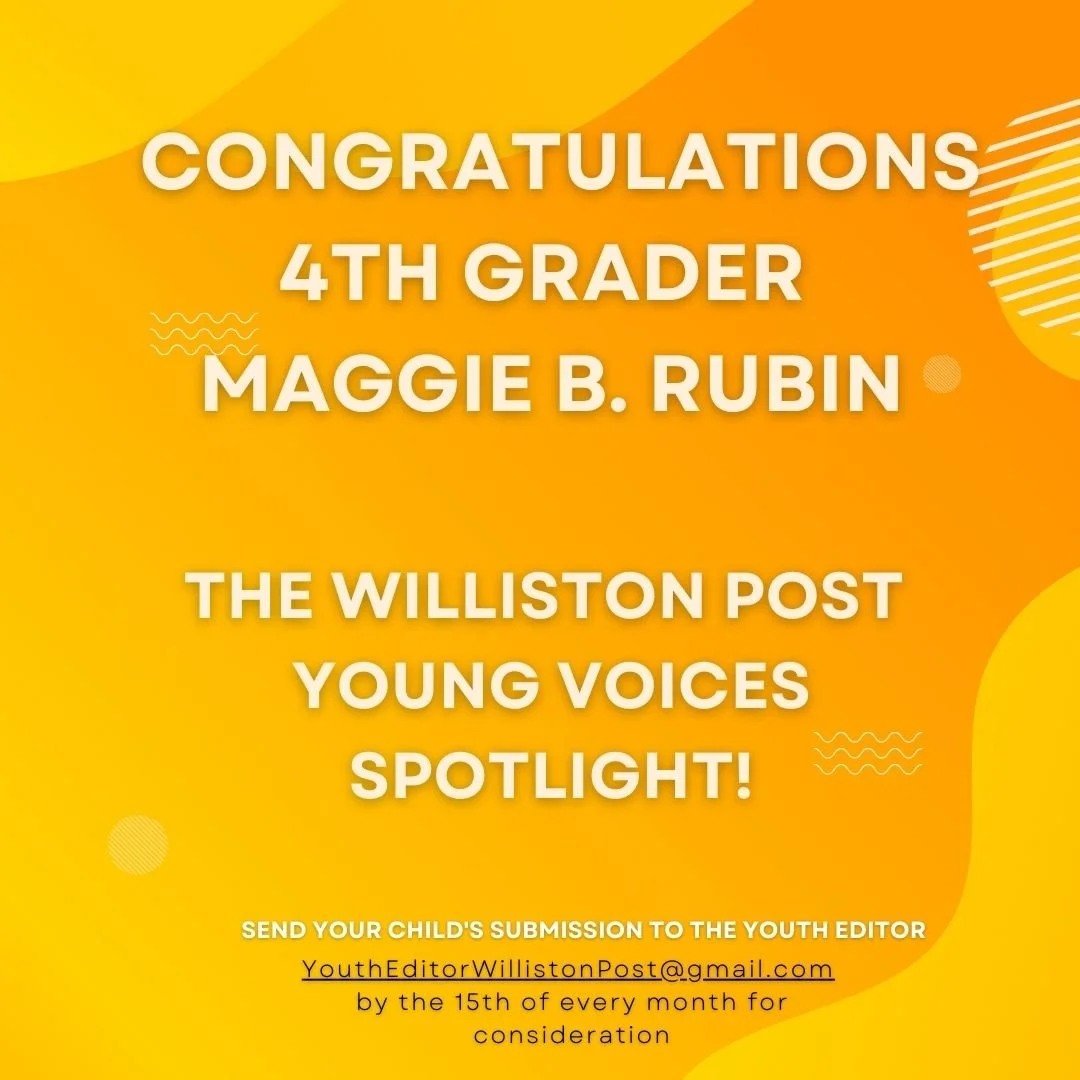YOUNG VOICES SPOTLIGHT:
Animal’s Lives Depend On Us
By 4th grader Maggie B. Rubin
Are you the kind of person who has a special bond with animals? Are you the kind of person who wishes they had met a Dodo Bird or a Golden Toad? Are you the kind of person who would be willing to keep animals alive? If so, keep reading.
Endangered Species
An endangered species is a group of animals that is endangered and could disappear, or become extinct. So many animals have gone extinct already, like the Dodo Bird or the Tasmanian Tigers. Most of the animals that are extinct died out from habitat loss. That continues today, like with the endangered Orangutan. Wildlife associations and zoos help by having fundraisers to earn money to help animals. Zoos help animals keep living and help them breed.
Pollution
Pollution is another thing harming animals. It greatly impacts everywhere, especially the air. The primary sources of human-made air pollution are vehicle emissions, fuel oils and natural gas to heat homes, by-products of manufacturing and power generation, particularly coal-fueled power plants, and fumes from chemical production. Air pollution harms animals and us, too. It makes the air unhealthy to breathe and to fly in. Air pollution is also one of the many factors of climate change.
Climate Change
Climate change is when the climate temperatures keep rising and then falling. Some ways we can solve this problem is to reduce the number of trips you take in your car or eliminate fireplace and wood stove use. Another way we can solve this problem is to avoid burning leaves, trash, and other materials and avoid using gas-powered lawn and garden equipment. Water pollution is another type of pollution. Water pollution is VERY harmful to animals. Animals get caught up in garbage and sometimes if they don’t get cared for they die from deep cuts. They also sometimes eat the trash, and die from it.
Although trash at some point disintegrates, it takes metal cans approximately 50 years to decompose, paper 2 to 6 weeks, and plastic never does. Over the next 20 years, scientists estimate about 70% to 90% of all coral reefs will disappear primarily as a result of warming ocean waters, ocean acidity, and pollution if the amount of pollution that is happening today continues. That isn’t good because Coral reefs produce an astonishing 50% of the world's oxygen while only covering 0.0025% of the ocean floor. Coral reefs are also home to so many animals. We can solve water pollution by using environmentally friendly detergents, not pouring oil down the drains, reducing the usage of pesticides, and so on. We can take community action too to keep our rivers and seas cleaner. You can recycle which actually helps all pollution.
And we can take action as countries and continents to pass laws against water pollution.
How would you like it if your favorite animal got extinct? Think about an animal losing a life and go outside and make change.
The Williston Post is seeking creative writing submissions from kids that could possibly be featured in our online newspaper each month.
Please see here for more details.

